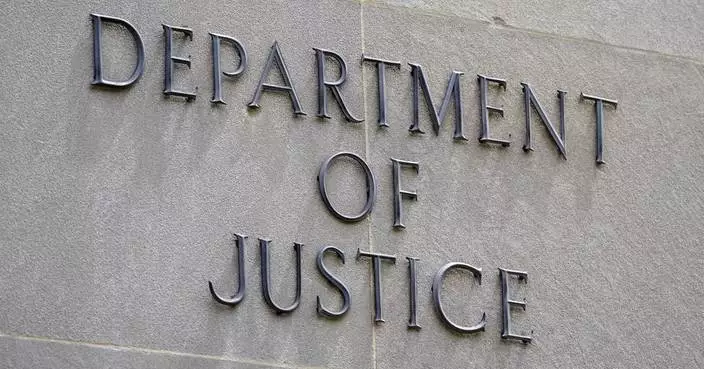DAKAR, Senegal (AP) — The United States will begin plans to withdraw troops from Niger, U.S. officials said Saturday, in what experts say is a blow to Washington and its allies in the region in terms of staging security operations in the Sahel. The planned departure comes as U.S. officials said they were trying to find a new military agreement.
The prime minister of Niger, appointed by the ruling military junta, Ali Lamine Zeine, and U.S. deputy secretary of state Kurt Campbell, agreed on Friday that the two nations would begin to plan the withdrawal of American troops, the U.S. State Department told The Associated Press in an email Saturday.
A U.S. official said there was no timeline for withdrawal besides talks set to start in the coming days about next steps. The official spoke on condition of anonymity to detail the private diplomatic discussions. An American delegation to coordinate the details of the withdrawal process will be dispatched soon.
Niger plays a central role in the U.S. military’s operations in Africa’s Sahel region, an area on the edge of the Sahara Desert. Washington is concerned about the spread of jihadi violence, where local groups have pledged allegiance to al-Qaida and the Islamic State groups. Niger is home to a major U.S. air base, in the city of Agadez, about 920 kilometers (550 miles) from the capital, Niamey, using it for manned and unmanned surveillance flights and other operations. The U.S. has also invested hundreds of millions of dollars in training Niger’s military since it began operations there in 2013.
But relations have frayed between Niger and Western countries since mutinous soldiers ousted the country’s democratically elected president in July. Niger’s junta has since told French forces to leave and turned instead to Russia for security. Earlier this month, Russian military trainers arrived to reinforce the country’s air defenses and with Russian equipment to train Nigeriens to use.
There was an attempt on the behalf of the U.S. to revise the military agreement with Niger that would allow them to stay, U.S. officials told the AP. But the agreement between Zeine and Campbell shows that the effort has failed.
A separate senior U.S. State Department official, who also spoke on condition of anonymity to speak about sensitive diplomatic talks, told the AP on Saturday that Niger's junta made a decision that they don't want any foreign forces in the country, including the U.S. and that the security partnership was ending for the time being. The junta told the U.S. that Russia's presence was to train Nigeriens on how to operate the equipment. The official said that the U.S. had valid concerns about some of the choices the junta was making, specifically about the potential for Russian and American troops to be colocated.
The loss of access to air bases in Niger is a major setback for the U.S. and its allies in the region because of its strategic location for security operations in the Sahel, said Peter Pham, former U.S. special envoy for the Sahel region.
“In the short term, they will be hard to replace,” said Pham, adding that remaining European Union military presence would likely pull out of Niger following the news of a U.S. departure.
The rupture of relations between the two nations would impact the development and humanitarian aid funds destined for Niger, a country at the bottom of many indicators of well-being, Pham said.
Insa Garba Saidou, a local activist who assists Niger’s military rulers with their communications, told the AP that American troops could potentially return after negotiations and that the ruling Niger junta, the National Council for the Safeguard of the Homeland, wants to maintain a good working relationship with the U.S.
The U.S should find a new mode of engagement that departs from the failed counterterrorism cooperation model of the past decade, and continues to press other states in the Sahel region on accountability and human rights abuses, said Hannah Rae Armstrong, a senior consultant on Sahel peace and security.
The two officials said that Niger and the U.S would continue to work together on areas of shared interest.

FILE - A U.S. and Niger flag are raised side by side at the base camp for air forces and other personnel supporting the construction of Niger Air Base 201 in Agadez, Niger, April 16, 2018. The United States is attempting to create a new military agreement with Niger that would allow it to remain in the country, weeks after the junta said its presence was no longer justified, two Western officials told The Associated Press Friday April 19, 2024. (AP Photo/Carley Petesch, File)










